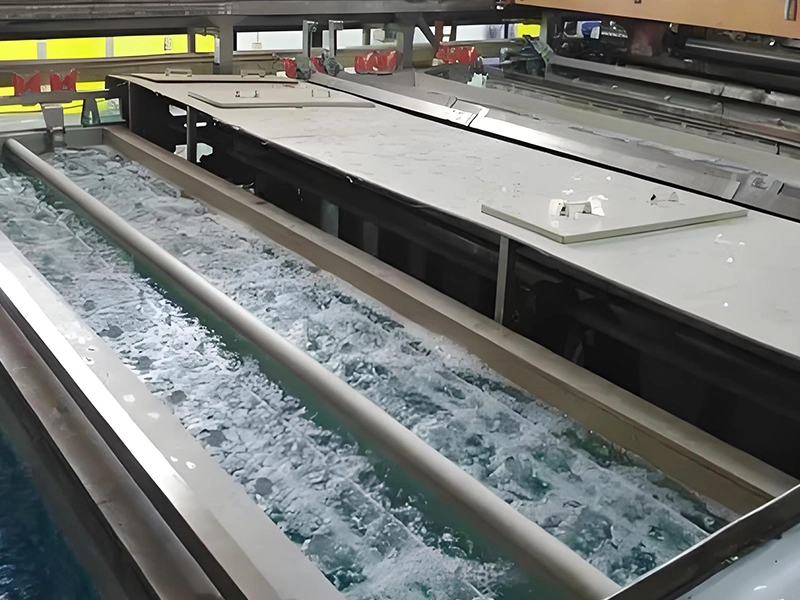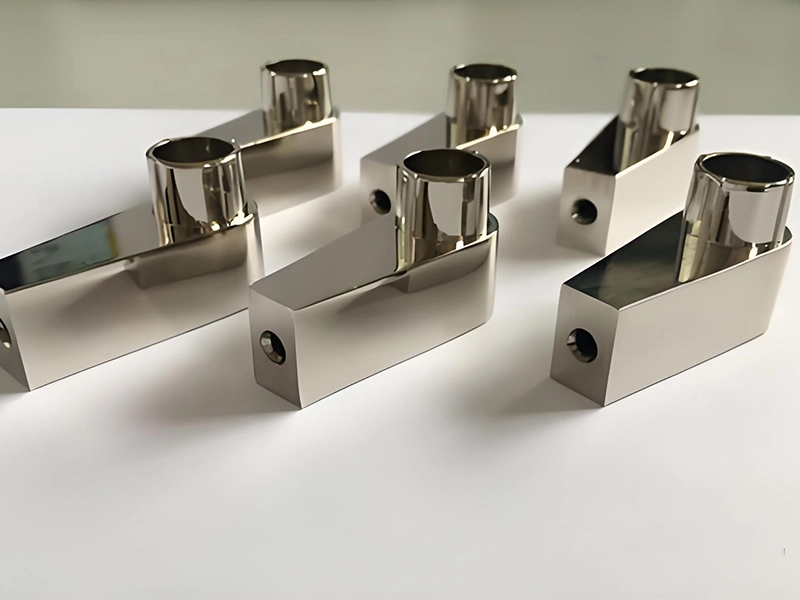Plating is an important surface treatment technology that can coat a layer of metal film on the surface of objects through an electrolytic process. As a leading and professional surface finishing supplier in China, Precionn's surface plating technology can enhance the aesthetic appeal of items, improve their corrosion resistance, and enhance their mechanical properties. This article will detail the applications of surface plating technology.
Increasing material hardness: Surface plating technology can form a harder metal layer on the surface of metals, increasing the hardness and wear resistance of items.
Preventing oxidation and corrosion: Surface plating technology can attach a very uniform metal film to the surface of metals, preventing oxidation and corrosion of the material's surface.
Improving appearance: It can also make the metal material surface smooth and flat, enhance the adhesion of the surface paint layer, and increase the aesthetic and texture of items.
Enhancing electrical and thermal conductivity: Our surface plating technology can improve the electrical conductivity and thermal performance of metal materials, optimizing the performance of items to a higher level.

In mechanical manufacturing, commonly used metal materials such as copper, iron, aluminum, etc., often require surface plating treatment to increase surface hardness, wear resistance, and corrosion resistance, while also improving electrical and thermal conductivity, promoting the development of mechanical manufacturing technology.
In the automotive industry, surface plating technology is mainly used for the treatment of component surfaces to increase the hardness and corrosion resistance of parts, while giving them a better appearance and texture.
Many components in electronic devices and communication equipment, such as printed circuit boards, electronic connectors, mobile phone cases, etc., also require surface plating technology to increase their durability and aesthetic appeal.
In the aerospace field, surface plating technology, as one of high precision china machining services offered by Precionn, is used to protect the metal structures and components of aircraft and improve their surface density and corrosion resistance, reducing the effects of oxidation and corrosion, and improving the safety and lifespan of the entire aircraft.
Commonly used steels. Plating the surface of steel can enhance surface appearance and rust prevention. Some might add a surface coating, such as hard chrome plating, to increase surface hardness.
Aluminum alloy materials. Aluminum alloys are commonly nickel-plated to prevent surface oxidation and increase the product's lifespan.
Copper and copper alloys. As good thermal and electrical conductors, copper is often used in aerospace, automotive connectors, and other components. It is commonly silver or gold-plated to enhance surface conductivity and increase product lifespan.
Non-metallic materials such as plastics can also be electroplated. These materials can undergo surface conductivity treatment before plating. For example, bathroom products.

Chrome plating: Chrome is a hard metal that significantly enhances the hardness and wear resistance of materials. It is very suitable for surface treatment of parts that require high corrosion resistance, such as automobile and bicycle components.
Nickel plating: Nickel has strong corrosion resistance, preventing material surface oxidation and corrosion. It also enhances material toughness, often used in the manufacturing of circuit boards, improving connector performance, and increasing the durability of electronic components.
Zinc plating: Zinc has good corrosion resistance, protecting steel materials from corrosion and oxidation. It is widely used in industries such as mechanical transportation, electricity, and construction.
Copper plating: Copper has good electrical and thermal conductivity, widely used in electronics, electrical appliances, and communication fields. For example, a layer of copper is plated on printed circuit boards to protect them and improve electrical connectivity and conductivity.
Gold plating: Gold's corrosion resistance, aesthetic appeal, and high density make it a "noble" in the surface plating industry. However, due to its high cost, it is only used in situations with extremely high material requirements, such as in aviation, defense, aerospace, and jewelry fields.
Silver plating: Silver plating can increase conductivity, reflectivity, and aesthetic appeal. It is widely used in the manufacturing of electrical appliances, instruments, and lighting fixtures.